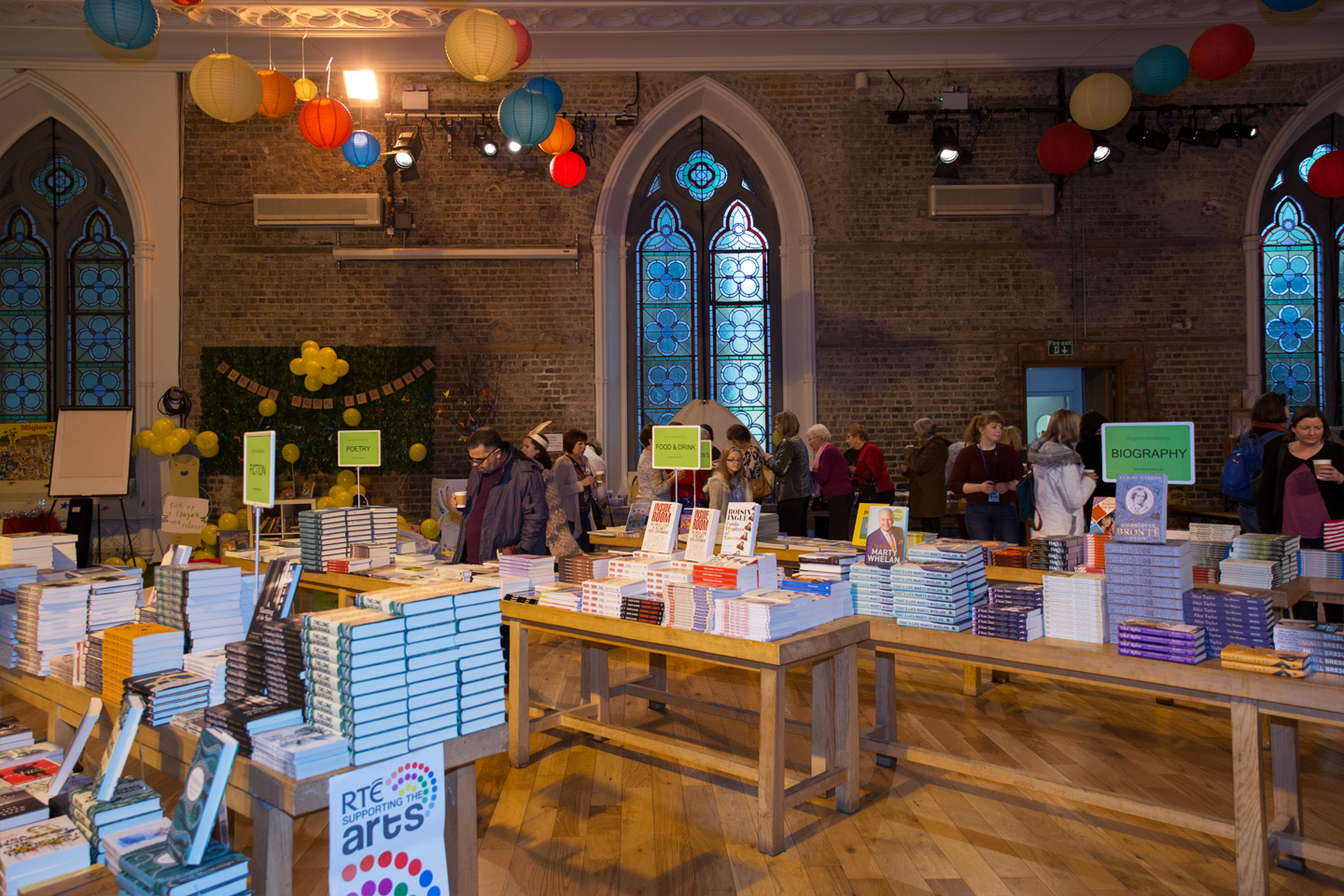
Dublin Book Festival is an exciting, week-long, annual event that focuses on showcasing, supporting and developing the Irish publishing industry. The festival is now in its eleventh consecutive year and has grown astronomically since the first festival which was held in 2006. The initiative was founded by Publishing Ireland, as there was no dedicated event that celebrated the unique merits and achievements of Irish publishing. Other festivals were dominated by large global publishing houses that focused on the international market. Film Base and City Hall served as venues for this event during its humble beginnings but it has now become an expansive, multi-day, multi-venue, multi-platform festival, with Smock Alley Theatre serving as its central residential hub.
Speaking to The University Times, the Programme Director of the festival, Julianne Mooney gave us an overview of what to expect from this year’s line-up. Mooney is an experienced travel writer, and this is her sixth year programming the festival. This year sees 140 authors involved in over 60 events across the week, running from November 2nd to 9th.
This year’s programme features a number of female-focused events, most notably the “Stand in Awe of Mná” open forum that takes place on Saturday November 4th in the Irish Writers’ Centre, Parnell Square, from 3.30pm–6.30pm. The panel discussion will focus on profiling women writers and publishers, and discuss the challenges and biases that they still face in the industry today. Mooney has a positive outlook on the state of gender equality in Irish publishing, saying that there is “huge respect and equality” present. She also highlights the female-centric nature of submissions being received by Irish publishers in the last few years, and says that the writers and publishers she deals with are “mostly women”.
This programme has a lot to offer young aspiring writers, and those seeking to break into a career in publishing. Mooney stresses the importance of using the festival events, particularly the industry talks, author talks, seminars and masterclasses. She also stresses the importance of the Smock Alley bookshop, which is a fixture for the week. She explains that over the weekend, “over 100 writers will be mingling” in the space and they hang around eagerly to talk to their audience members, offering advice on how to get published as well as valuable writing tips. Executives from key homegrown publishing houses are also floating about and Mooney urges attendees to make the most of the opportunity to network with them, highlighting the fact that it’s a “small scene where everyone knows everyone” and it’s therefore easy to get to know people once given the chance.
Almost all of the events are free which makes the festival accessible to people of all ages and interests. When I asked Mooney what influences her programming most, she had one clear focus in mind – audiences. She thinks about “who goes well on a panel”, what kind of audience events are going to draw, what said audiences want to see. She is very focused on creating diversity between different audiences, but also on “family focused programming”, so that people can bring their children and get them excited about books. Although there are events specifically aimed at children, such as a children’s literature symposium for two days during the festival in the Ark, Temple Bar, all genres find a voice, from fiction to history, poetry, children’s books, comedy, politics and even cookbooks.
An ongoing theme that Mooney has noticed in the past few years is the fluidity and possibility for development within the industry – movement between genres is prevalent, as authors are flowing from one art-form to the next. She also loves to see how the writers she meets develop over the span of a few years – they may start out with just one short story and go on to launch a debut novel at the festival a couple of years later.
Mooney is keen to highlight the volume of literary venues and organisations around Dublin. For her, the Irish Writers’ Centre remains inspiring, although it is by no means a hidden gem: “They’re always working with new groups, always on the road around the country running events.” She also has a particular affinity with the Gutter Bookshop on Cow’s Lane, Temple Bar. Owner Bob Johnston is a huge supporter of the festival. She enthuses that he is “passionate about books, forward thinking, holds so many launches and events in such a small space”, and does so much to “bring writers to the fore” regardless of where they are in their career. Mooney also celebrates Poetry Ireland’s new Parnell Square premises, as it affords the organisation a place to “grow as a community”, where enthusiasts can come together to talk about poetry.
Tales for Tadpoles is another favourite for Mooney. This unique children’s book shop is only a year old. They “cordon a certain market” stocking unique books and accessories. They have “passion about what they stock” and “lots of old style”. It’s clear that Mooney champions both Irish publishers and booksellers, her programme really reflects the passion she has for them.
I asked Mooney what she hopes audiences will take away from attending the festival. Her answer is impassioned, she wants attendees to come away “inspired and amazed at what Irish publishers are bringing out and what Irish authors are creating”, because our “home grown talent is still incredible”.






